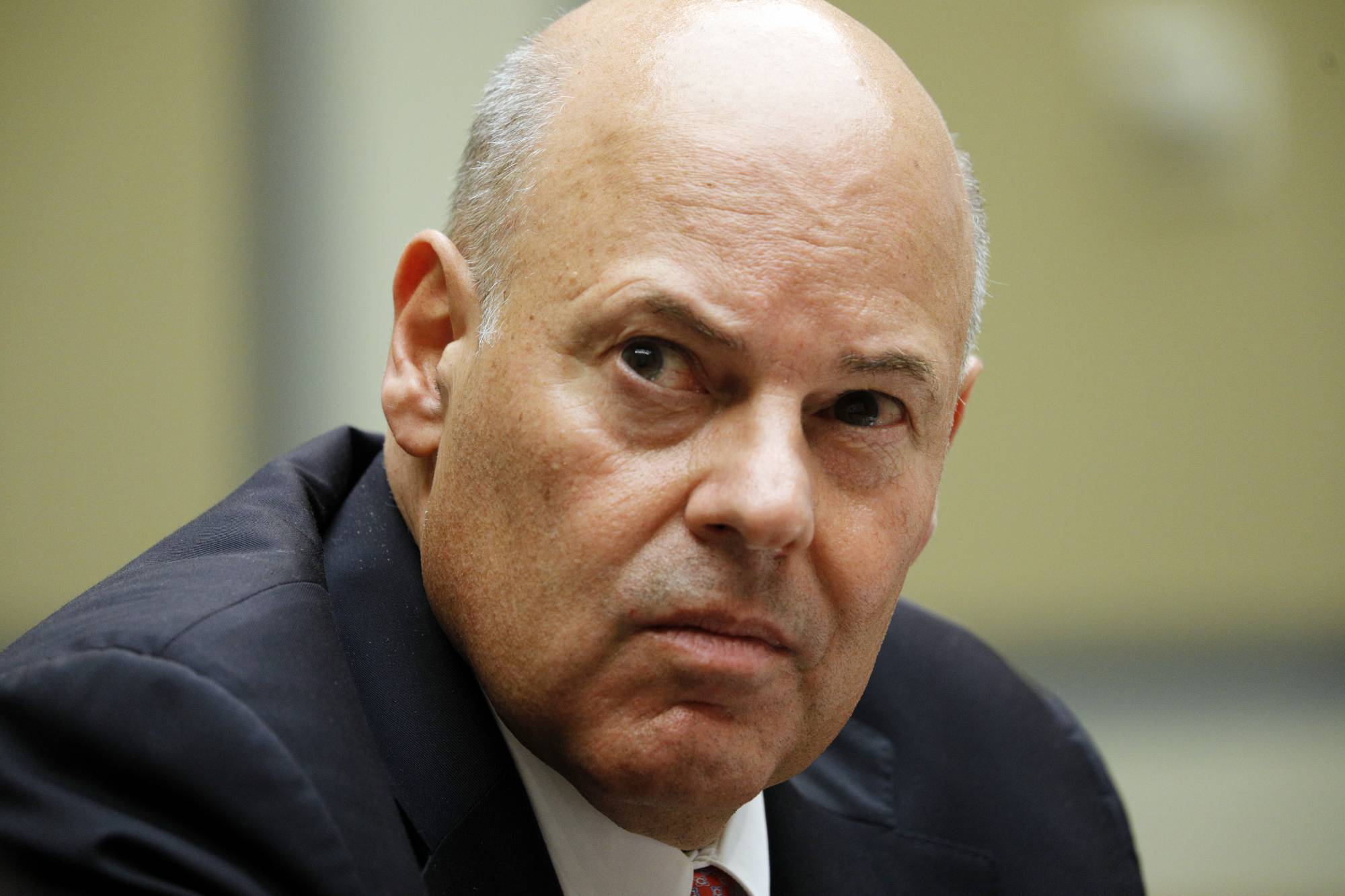Fort McNair Army civilian guilty of abusing his GSA gas card
In today's Federal Newscast: A Fort McNair Army civilian is guilty of charging thousands of dollars on a GSA gas card. A deputy archivist ends her federal service...
- The pay gap between the federal and private sectors is growing. Federal employees earned 27% less than private sector workers over the last year. That is a more than 3% increase in the pay disparity since 2022. President Biden proposed a 5.2% average pay raise for feds starting next year. Despite support for the raise, leaders on the Federal Salary Council said it won't be enough to resolve federal pay issues. They recommended adjusting the way the government calculates future pay raises to try to bring federal salaries closer in line with the private sector.(Federal pay falls even further behind the private sector - Federal News Network)
- The Department of Health and Human Services is gearing up to do some holiday shopping for a new CIO. Karl Mathias, the lead technology executive at HHS since March 2022, is leaving to take a new role at NASA. In an email to staff, obtained by Federal News Network, Mathias said his last day as the HHS CIO will be December 1. Mathias didn’t specifically say what his new role will be at NASA, just one that brings him back into the engineering realm. HHS deputy CIO Jennifer Wendel will serve as acting CIO until a permanent one is hired. Mathias joined HHS in March 2022, coming over from the U.S. Marshals Service.(HHS CIO Mathias moving to engineering role at NASA - Federal News Network)
- The Postal Service is falling behind on plans to reach long-term financial stability. USPS said higher costs beyond its control are to blame for a $6.5 billion net loss for fiscal 2023. It expects to see about the same loss by the end of this year. That is far off from USPS expectations to break even at this point in its 10-year reform plan. Postmaster General Louis DeJoy said USPS is still avoiding some of the more dire outcomes it feared at the height of the COVID-19 pandemic, when it was close to running out of cash. “While we are not happy with this result, we cannot lose sight of the downward trajectory the Postal Service faced in the fall of 2020,” DeJoy said.(USPS won’t ‘break even’ in FY 2024 as expected in its 10-year reform plan - Federal News Network)
- A top federal watchdog said Congress should expand a key anti-fraud tool. The Pandemic Analytics Center of Excellence (PACE) has helped the oversight community track down billions in misspent COVID relief funds. But funding for PACE runs out in a little under two years. Inspector General Michael Horowitz, chairman of the Pandemic Response Accountability Committee, said PACE should be reauthorized and expanded to cover all federal spending. “We have to work with executive branch agencies, [Office of Management and Budget] leadership, and Congress to make sure agencies use an analytics platform to prevent fraud before it happens,” Horowitz said during a Nov. 14 Senate Homeland Security and Governmental Affairs Committee hearing.(Lead pandemic watchdog urges lawmakers to extend COVID anti-fraud tool to all federal spending - Federal News Network)
- The federal government’s landlord sees a major opportunity to scale back the amount of office space agencies use. That is because agencies, including the General Services Administration, are embracing the long-term benefits of a hybrid and remote workforce. GSA Administrator Robin Carnahan said, in coming years, GSA will have an opportunity to shrink federal office space by up to 30%. “Right now, agencies across the government are rethinking how much space they actually need,” Carnahan said.(GSA sees ‘huge opportunity’ to cut federal office space by up to 30% - Federal News Network)
- The guilty plea of an Army civilian maintenance worker at Fort McNair is offering a good reminder to not use the government fuel credit card for your own purposes. Tyrone Norman Dais, 54, of Washington, D.C., pleaded guilty yesterday in Superior Court to one count of first-degree theft and will pay almost $34,000 in restitution. Dais repeatedly purchased gasoline for private vehicles using a General Services Administration fuel credit card meant solely for a designated maintenance van on the Fort McNair grounds. From April to October of 2023, Dais frequently arranged to meet private vehicles at area gas stations and used his GSA credit card to purchase their gas. In total, Dais made more than 400 unauthorized purchases.
- A longtime National Archives and Records Administration (NARA) leader is stepping down at the end of the month. Debra Steidel Wall, deputy archivist of the United States, announced her retirement this week after 32 years of federal service. She first joined the National Archives in 1991, as an archivist trainee in the Motion Picture, Sound and Video Branch. Wall went on to lead the creation of NARA’s first agency-wide archival data model and description standards. Wall has served as deputy archivist since 2011.
- While the Coast Guard is working on recommendations from the Government Accountability Office, it still has a way to go. As of this month, it has fully implemented four recommendations and partially implemented two recommendations, with 25 remaining. For example, the Coast Guard needs to adequately determine its workforce needs, as it faces challenges meeting daily mission needs because of workforce shortfalls. The Coast Guard said it is working to fix this challenge. There are also problems with its purchases of new cutters, which are billions of dollars over estimates and behind schedule.(Coast Guard continues to try to address workforce challenges - Government Accountability Office )
- The House cleared a bill to try to avoid a government shutdown at the end of the week. The Republican-led stopgap appropriations package would implement a two-step approach to a continuing resolution. Some agencies would receive funding until January 19. Other agencies would be financed through February 2. The House bill, which passed in a vote of 336-95, appears to have a somewhat better chance of making it to the finish line. Senate Minority Leader Mitch McConnell (R-Ky.) said he expects it to pass with bipartisan support. The bill now heads to the Senate for consideration ahead of Friday night's deadline to avoid a shutdown.(House votes to prevent a government shutdown as GOP Speaker Johnson relies on Democrats for help - Federal News Network)
- The Pentagon has a new responsible artificial intelligence toolkit to align projects to responsible AI best practices and Defense Department principles for ethical AI. The toolkit creates a process to identify, track and improve AI projects with these guidelines. It helps create technical tools and guidance to design, develop, deploy and use AI systems responsibly. It expands upon guidance from the Defense Innovation Unit and the National Institute of Standards and Technology. DoD’s Chief Digital and AI Office released the toolkit yesterday, as it fulfills the department’s responsible AI strategy and implementation plan.
- The Thrift Savings Plan's I Fund will soon undergo a transition in its benchmark index. The Federal Retirement Thrift Investment Board approved the index change Tuesday. The goal is to diversify investment opportunities and improve the I Fund’s risk-return profile. The board expects the updated index to outperform the previous I Fund index when adjusted for risk over the long term. The new index notably excludes investments from China, Hong Kong and the United States. The board will transition the I Fund from the current index to the new index in 2024. No changes were made to the C Fund, S Fund or F Fund.(Board approves a new benchmark index for I Fund - Federal Retirement Thrift Investment Board)
Copyright © 2024 Federal News Network. All rights reserved. This website is not intended for users located within the European Economic Area.
Peter Musurlian
Peter Musurlian is a producer at Federal News Network.
Follow @PMusurlianWFED






